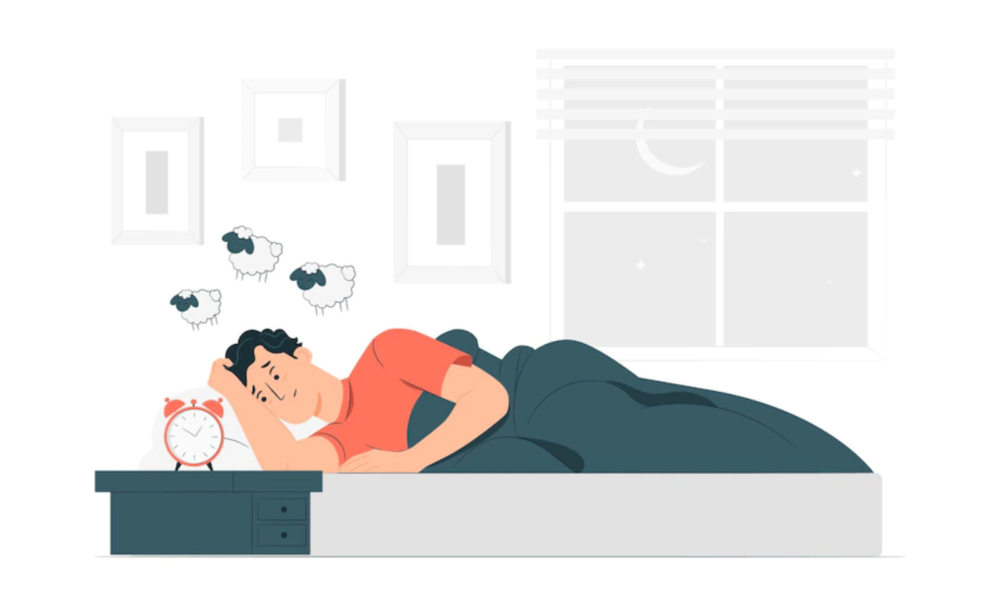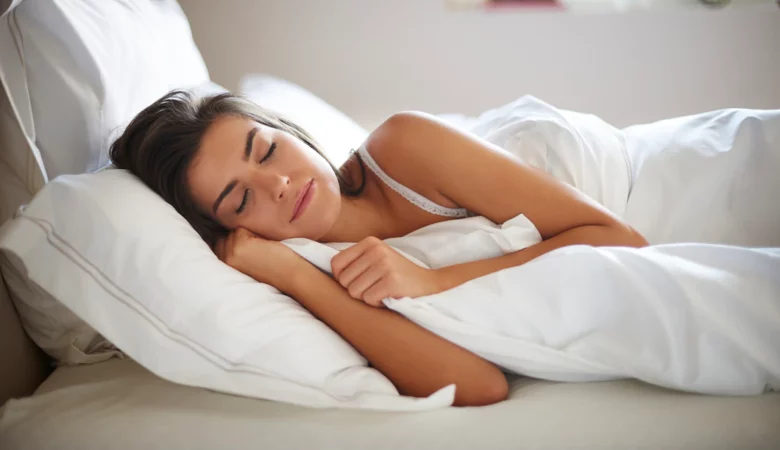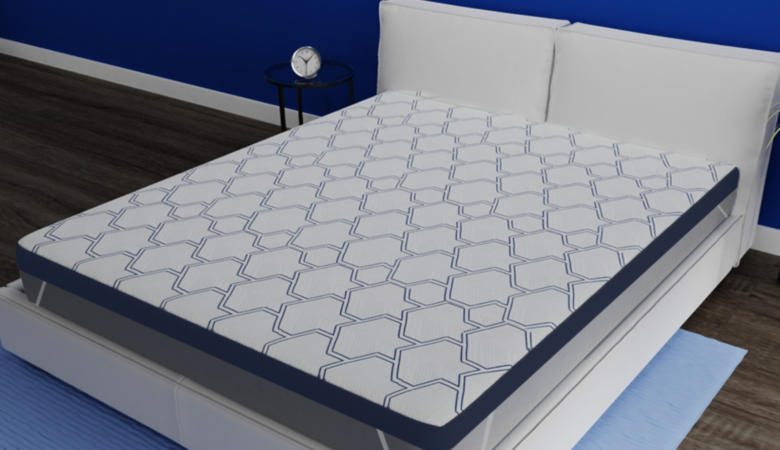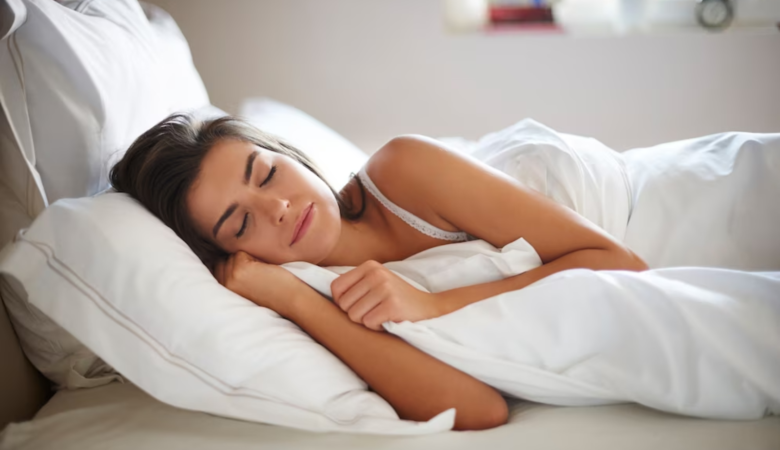A person sleeps for about one-third of their life. Even so, sleep remains a little mysterious. But we know the crucial connection between sleep and our well-being, happiness, and health.
Sleep is the first thing to go in today’s “hustle-centric” society. Gallup claims that over the past 50 years, we have slept an hour less per night than we did in the 1950s. The study of sleep has advanced significantly over the past 20 years, giving researchers a better understanding of how sleep works, why it’s important, and how it might be disturbed.
Despite this, it’s still typical to come across false information regarding sleep that’s disseminated online, via social media, or by word-of-mouth.
Please continue reading to learn about the typical sleeping rules and the justification for breaking them.
1. For optimal health, you need five hours of sleep or less
Researchers claim that this myth reflects the biggest public health threat. Consistent sleep deprivation has been linked to several negative health effects, none of which are good.
Sleep is critical, and chronic sleep deprivation negatively impacts lifespan and general health. This is because our bodies and brains cannot perform many essential maintenance tasks when we awake.
While experts say, most people need eight hours of sleep per night, each person’s genes heavily influence the precise amount of time necessary to complete these tasks. Some people, known as short sleepers, only require seven hours, whereas long sleepers require nine.
Contrary to popular opinion, very few people need less than six hours of sleep each night, and those who claim they do are almost usually severely sleep-deprived regularly.
2. The time of day you sleep doesn’t matter regarding your health.
According to the CDC, about 35% of people do not get the recommended eight hours of sleep each night. Many people don’t get any sleep because they work through the night. As a result, they accrue a sleep debt that, among other things, has a negative impact on their immune system, attractiveness, and brain function.
Our body is impacted in several ways by insufficient sleep, including puffy eyes and dark circles, cravings and hunger pangs that can lead to obesity, lack of focus on duties at work or home, and recurrent infections because of weakened immune.
Our bodies typically follow a circadian sleep-wake cycle that is affected by sunrise and sunset. Due to our jobs, families, and social lives, we only occasionally get to sleep during the night.
Even though occasional sleep deprivation isn’t necessarily a big thing, permanently changing your sleep schedule is unhealthy.
3. Snoring is not harmful, and you should not worry about it
Light, infrequent snoring typically doesn’t create any issues, but loud, persistent snoring frequently raises red flags.
Obstructive sleep apnea (OSA), a dangerous respiratory problem that disrupts sleep and stops a person from breathing in the oxygen their body needs, maybe the cause of chronic or loud snoring. It is the most prevalent type of sleep-related breathing problem, which includes a range of sleep disorders characterized by irregular breathing while sleeping.
Additionally, snoring can wake up a roommate or bed partner.
Different methods can be used depending on the cause of snoring. OSA can be treated with PAP machines that keep the airway open. Anti-snoring mouthpieces and mouth exercises can help many people reduce or stop their snoring, and in many cases, losing weight can also help.
4. A sound sleep system is characterized by the capacity to fall asleep whenever and wherever
Extreme hunger is evident by sitting down and eating a substantial meal. Similarly, laying down and nodding off right away indicates sleep deprivation. Falling asleep takes time and is a process.
A well-rested individual needs 15 minutes on average to fall asleep. Therefore, easily falling asleep could mean you’re not getting enough restful sleep.
Even though it might seem like a gift, falling asleep right away during a meeting or flight may signal that you need more sleep.
The key to restful, high-quality sleep is consistency. Our circadian rhythm controls our internal body clock and sleeps cycle. It can discern when we ought to be awake and when we ought to be tired. It is unable to react to unexpected developments. You should pay attention when you wake up and go to bed.
5. Watching television is a fantastic method to relax before night
Many people find that watching TV before bed gives them much-needed downtime. This regular bedtime routine increases ambient noise. If you’re anxious, it can help you block out the worrying thoughts that majorly contribute to insomnia.
The ease of viewing television before bed contributes to its appeal. In one survey, almost one-third of adults said they watched TV to help them fall asleep.
Although it may be a common practice, watching TV before bed could indicate something other than a beneficial habit. According to the most recent research, excessive screen time, especially right before bed, can impair your ability to sleep.
Usage of electronic devices just before bedtime is typically linked to poor sleep quality and time shifting, which causes later bedtimes and earlier rise times. TV and other visual-stimulating media use before bed is also related to increased stress and weariness.
How Can A Mattress Help You Get Better Sleep?
All we need is a restful night’s sleep after a demanding day. In the hours of darkness, our bodies unwind, and so does our mind. One should buy a comfy mattress for this and many other reasons.
You can hike up a mountain and complete a marathon with the proper equipment. And yet, even though we spend one-third of our lives asleep, many of us still need to make the proper preparations in the bedroom, specifically when it comes to mattresses.
There is no one-size-fits-all mattress because everyone is different. When deciding which mattress to purchase, there are several things to consider.
According to research, having a medium-firm foam mattress, especially one with adjustable firmness, while sleeping can improve comfort, spinal alignment, and the quality of your sleep.
For support and pressure reduction, Livpure memory foam mattresses are made to conform to the curve of your body. The contouring of Livpure mattresses is renowned for hugging your body. Once you walk about, it also takes on its original shape.
To Sum Up
Both good and bad health consequences are related to sleep quality. By dispelling these false rules, researchers expect that people will better understand sleep, develop healthier sleep habits, and ultimately improve their health. To ensure you get enough sleep every night, it’s critical to determine what works best for you. Create your own set of rules for sleeping.
If you are thinking of improving the quality of your sleep, invest in a Livpure mattress. Head to the Livpure store to get various options from Livpure memory foam mattress, Livpure orthopaedic mattress and many more. Invest in a good mattress and invest in your health.








